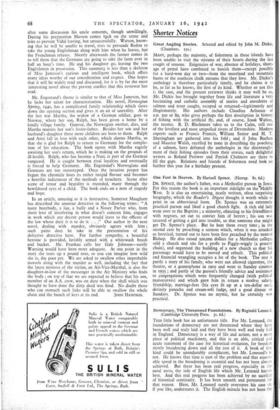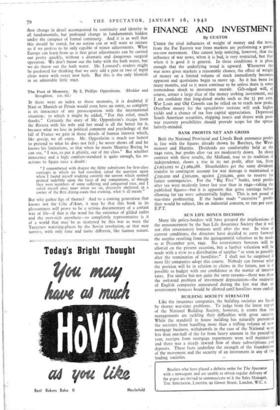Democracy, The Threatened Foundations. By Reginald Lennard (Cambridge University Press.
3s. 64.) Tins little book has an unfortunate title. For Mr. Lennard, the foundations of democracy are not threatened where they have been well and truly laid and they have been well and truly laid in England. Democracy is a way of life and action, not a mere piece of political machinery, and this is an able, critical and acute statement of the case for historical evolution, for freedom slowly broadening down and all the rest of it. A book of this kind could be unendurably complacent, but Mr. Lennard's is not. He knows that time is part of the problem and that reason- able speed in the broadening is essential and has not been always achieved. But there has been real progress, especially in the zural areas, the side of English life which Mr. Lennard knows best. And this real progress has been achieved by no sacrifice of historical continuity. It has been smooth and permanent for that reason. Here, Mr. Lennard surely overstates his case or, if you like, understates it The English miracle has not been the
slow change in detail accompanied by continuity and identity in all fundamentals, but profound change in fundamentals hidden under the carapace of formal continuity. And it is as well that this should be stated, for no nation can or will want to imitate us if we profess to be only capable of minor adjustments. What Europe can learn from us is that great adjustments can be carried out pretty quickly, without a dramatic and dangerous surgical operation. We don't throw out the baby with the bath water, but we do throw out the bath water. Mr. Lennard's readers might be pardoned for thinking that we only add a pint or two of tepid clean water with every new bath. But this is the only blemish in an admirable little tract.



























 Previous page
Previous page